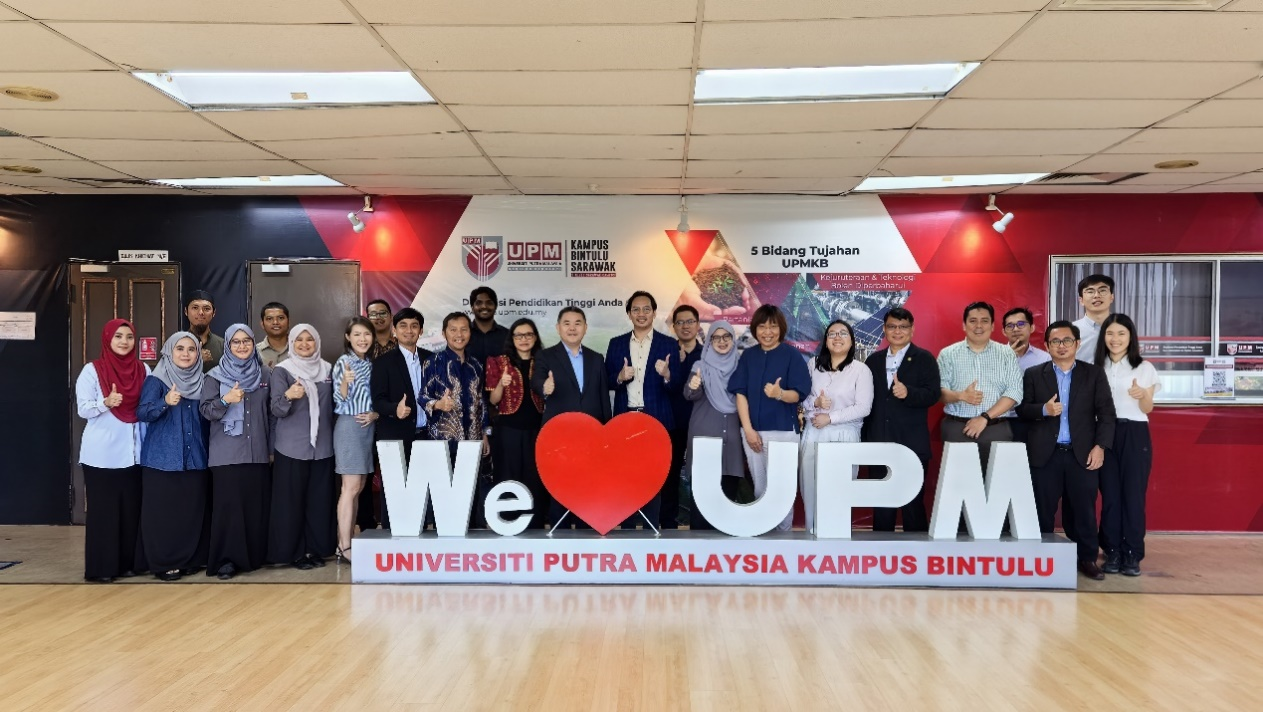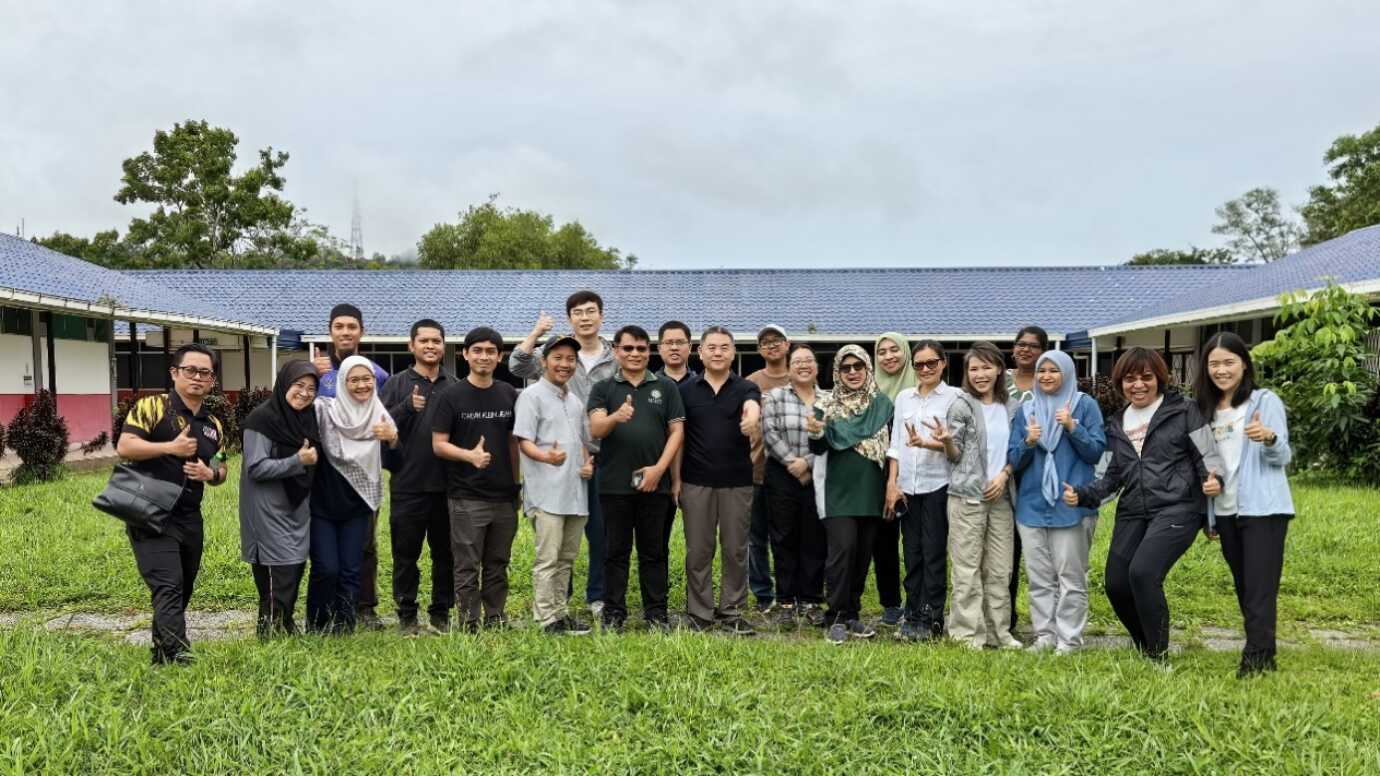Regional Collaboration Project on Crop Biodiversity Launched in Malaysia
Jun 28, 2024
The "Promoting Crop Biodiversity through Innovative Space Applications (CropBio)" project was officially launched in Bintulu, Malaysia on June 5-6, 2024. This project was initiated by the Aerospace Information Research Institute of the Chinese Academy of Sciences (AIRCAS) and the United Nations Economic and Social Commission for Asia and the Pacific (ESCAP).
The project aims to enhance the availability and accessibility of crop biodiversity data in selected subnational locations in China, Indonesia, Malaysia and the Philippines by building geospatial crop databases and conducting a crop diversity assessment that could become a model for conducting future assessments in other locations. Universiti Putra Malaysia (UPM) served as the local host for the CropBio project inception meeting. The successful CropBio project inception meeting marks a significant step forward in regional agricultural collaboration.
The conference saw the participation of over 20 representatives from various countries, including government departments, research institutions, and universities from the United Nations, China, Indonesia, Malaysia and the Philippines. Notable attendees included WANG Keran, Chief of the Space Applications Section at UNESCAP; researchers WU Bingfang and ZENG Yuan from the CropWatch team at AIRCAS; Shahrul Razid Sarbini, Head of UPM Bintulu Campus; Syeed Saifulazry Osman Al Edrus, Director of the Borneo Ecological Research Institute in Malaysia; Nathaniel R. Alibuyog, Vice President of Mariano Marcos State University in the Philippines; and Syahrul Kurniawan, Head of Department at Universitas Brawijaya in Indonesia.
The initiation of the project is a follow-up to the discussions held at the Regional Forum on Geospatial Information Applications for Resilient Agriculture in South-East Asia held in Kunming, China and online from 30 November to 1 December 2023. Promoting crop diversity, defined as a subset of biodiversity that contributes in one way or another to food security, environmental sustainability, and human health, could help build the resilience of food systems to multiple challenges, including climate change, extreme weather events, land and water constraints, biodiversity loss, soil degradation, and other related issues. It is expected that enhanced capacity to monitor and assess the state of crop biodiversity will help countries in making progress towards SDG 2.4 and targets 10 and 20 of the post-2020 Kunming-Montreal Global Biodiversity Framework. The CropBio project inception meeting signifies the transition from CropBio concept to practical implementation.
During the opening ceremony, WANG Keran praised the CropWatch team's achievements in global agricultural remote sensing monitoring and emphasized the importance of regional cooperation. He highlighted that the project will strengthen the capacities of pilot countries, providing technical support and policy advocacy to enhance agricultural resilience and technological advancement in Southeast Asia. The methodologies, lessons learned, and tools developed from this project will be disseminated across Asia-Pacific through ESCAP platforms to encourage replication, as part of the implementation of the Asia-Pacific Plan of Action on Space Applications for Sustainable Development (2018-2030) .
Shahrul Razid Sarbini expressed congratulations on the project's launch, affirming UPM's commitment to actively participate in crop diversity assessments and support sustainable development goals.
Professor WU Bingfang delivered a keynote address on the role of crop diversity in achieving the goal of zero hunger, discussing the trends and issues in large-scale, intensive agriculture. He outlined the significance of crop diversity in ensuring stable production, reducing inputs, and improving agricultural ecosystem health. Wu emphasized the urgent need for utilizing geospatial information to monitor crop diversity across various scales and its relationship with human health, yield stability, ecosystem resilience, and local livelihoods.
Kareff May Rafisura presented an overview of the CropBio project, including its organization, participating teams, expected outcomes, and key milestones. The project aims to fill gaps in zero hunger monitoring through a three-year collaborative research effort, providing models for achieving sustainable development and biodiversity goals.
The conference included detailed discussions on research site standards to ensure data comparability across countries. Prof. ZENG Yuan introduced the project's background, objectives, and implementation plan, stressing the importance of multi-country joint research and comparative analysis to reveal the significance of crop diversity in production, environment, nutrition, and health. Dr. ZHENG Zhaoju shared insights from crop diversity research experiments conducted in Yunnan, China, detailing site selection, ground surveys, data acquisition, estimation methods, and future research plans. Associate researcher ZENG Hongwei and Dr. XU Cong provided training on CropWatch's GVG software for crop type surveys and FieldWatch for crop yield surveys.
Participants also reviewed and refined the proposed research demonstration areas in Malaysia, the Philippines, and Indonesia, ensuring the rationality, monitoring content, and research plans for these sites. The delegates conducted field visits to Malaysian research areas, observing crop type and yield ground surveys.
The next CropBio meeting is scheduled to take place in Yunnan, China, focusing on field demonstration of project methodology and joint field survey, advancing crop diversity monitoring in the four selected subnational locations in China, Indonesia, Malaysia and the Philippines.

A group photo of the launching ceremony.

Field investigation.



News & Events